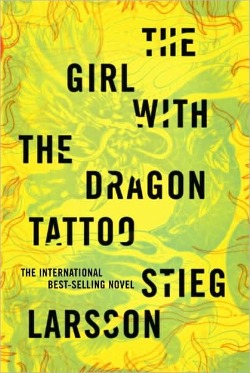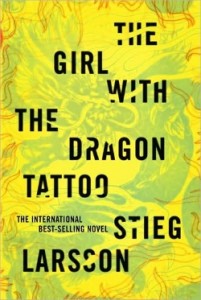The computer ‘hacker’ character undermines the credibility of many thrillers
 The use of a hacker character in Swedish writer Stieg Larsson‘s megaseller The Girl with the Dragon Tattoo
The use of a hacker character in Swedish writer Stieg Larsson‘s megaseller The Girl with the Dragon Tattoo made me want to throw knives like the Swedish Chef on The Muppet Show. To explain why, let’s look at the role the “hacker” character has taken in recent crime fiction (and in movie thrillers.)
In Dragon Tattoo the eponymous heroine is the now generic thriller/mystery character: the Internet hacker genius. Whenever Larsson needs to inject some new information or to unravel a tricky plot point, his hacker opens up her laptop and links into www.secretgovernmentinformation.gov, the well-known (to fiction writers) site where intelligence networks store material they want to be sure is available only to fictional hacker geniuses (and by proxy to thriller writers).
Hackers can do this kind of thing. But thriller writers don’t take the time to learn enough about cybercrime to make the manner in which hackers operate credible. It all takes place by magic. Dragon Tattoo isn’t the worst offender on this score. Just the biggest seller.
Computers and hackers are a necessary part of today’s criminal world and therefore of crime fiction. That’s why I’m currently taking a course in cybercrime and cybersecurity. I want to be sure any computer crime in my novels is handled credibly. I’ve learned that any hacking you make up off the top of your head will be a lot less scary than what real hackers (whether individuals, crime syndicates, or governments) are up to.
If you don’t believe me, watch this:
In my previous novels the only time the Internet comes up is in A Grave in Gaza when the granddaughter of my Palestinian sleuth Omar Yussef sets up a website for him in her attempt to make him seem more professional. The Palestine Agency for Detection, as she calls her site, is merely embarrassing to Omar. No plot-point-shifting Houdini act there.
I’m sensitive to this question of hackers in thrillers, because I’ve been living in the Middle East for almost two decades. How does that follow? Here’s how:
The computer hacker has taken over from the Israeli Mossad as the thriller writer’s cure-all. In the old days, if there was something your main character couldn’t figure out, all he had to do was get in touch with the nearest Mossad agent, who’d be sure to know all the secrets in the world and was happy to pass them on with a few dark words about never forgetting the Holocaust and a cheerful “Shalom.”
As someone who presently lives in Israel, I can tell you the Mossad doesn’t operate that way. Neither does the Internet. So write credibly about the work of hackers and those who fight them. That’ll make your work seem much less like that of a … hack.

 Favorite writers inspire creativity
Favorite writers inspire creativity
Leave a Reply